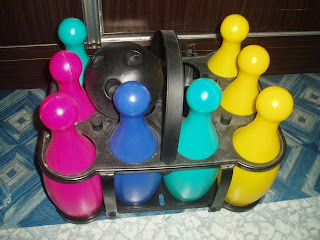
Not all of us are born to be a teacher or be able to teach others. But all parents are actually the best teacher for their own child. No matter what, in order for us to ensure our children success, beside their school teacher, we should also play the role as teacher in their learning process.
Part IV describing seven teaching techniques that we could apply in teaching our children daily.
We are our child's best role model. Chapter 20 in this Part IV better explaining this. We must demonstrate through our own actions anything that we want our child to learn.
Next, practice makes perfect. Chapter 21 explain to us how important it is for us to encourage our children to continuously practice what ever his or her new skills. As mentioned in the "Genius in 28 Steps"
practicing will lead to mastery.
Some of Kak Da's art work

To ensure our children will grasp better understanding of what ever they learnt, we need to divide complex learning tasks into small, easy-to-achieve objectives. Pn Halimahton Yusof explain this as Divide & Conquer (Chapter 22).
After all the teaching we also need to get feedback from our children. Feedback here, does not necessarily comment from your children, it may also comes from your own assessment of your children expression or body language. This are among issues discuss in Chapter 23-Feedback.
Pn Halimahton express on how important it is for us to
Go with the Flow in Chapter 24. We need to guide our children along the lines of their existing interests.
Image of mermaid again by Kak Da.

From my observation, Shahindah likes to draw. Among items that she likes to draw are images of girls, her mother, father and younger sister and brother. She also like colouring so much. While my "Adik" her interest is more towards computer operating, calculators and hand phone.
See you all in my next post for more information on "
Genius in 28 Steps".












